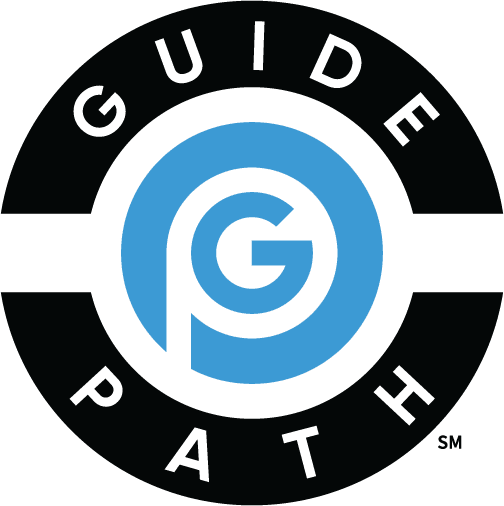As the LGBTQ+ population ages, the senior living industry faces a vital responsibility: ensuring that every elder is treated with dignity, respect, and compassion—regardless of their sexual orientation or gender identity.
The Society of Actuaries Research Institute’s 2025 report on LGBTQ+ aging and retirement highlights the critical importance of this issue. The report outlines a range of barriers LGBTQ+ elders face—from healthcare discrimination and social isolation to housing insecurity and legal uncertainties. Meeting these needs requires more than good intentions. It demands training, awareness, and a commitment to culture change.
Guide Path is leading the way with advanced training modules that equip caregivers and senior living leaders to provide compassionate, respectful, and legally compliant care. By focusing on Diversity, Equity, Inclusion, and Belonging (DEIB), Guide Path is setting a new benchmark for inclusive elder care.
Understanding the Gaps
The aging LGBTQ+ population is resilient, but the challenges are real:
- Discrimination in Care: Many LGBTQ+ seniors hide their identity to avoid mistreatment in healthcare or residential settings. This “return to the closet” compromises care and dignity.
- Health Disparities: LGBTQ+ elders often experience elevated rates of depression, anxiety, and chronic illness—linked to lifelong discrimination and stress.
- Housing Insecurity: Seniors have reported biased treatment in housing applications, leading some to conceal their identity or lose access to inclusive housing altogether.
- Social Isolation: Without children or supportive family, many LGBTQ+ elders rely on “chosen family”—friends and partners who are often not legally recognized in care settings.
- Legal Vulnerabilities: End-of-life care, medical decision-making, and inheritance rights are complicated by the legal gray areas that still affect LGBTQ+ individuals and their families.
Each of these challenges highlights the urgent need for culturally responsive, legally informed caregiving. And that’s precisely where Guide Path comes in.
How Guide Path Closes the Gap
Guide Path’s training modules were developed in alignment with national CLAS (Culturally and Linguistically Appropriate Services) standards and grounded in trauma-informed, empathic care. Here’s how the core training components deliver impact:
1. DEIB: Diversity, Equity, Inclusion & Belonging
This foundational module helps staff and leaders build a culture where all residents feel valued. It covers:
- Understanding diverse identities and lived experiences
- Using inclusive language, such as chosen names and pronouns
- Creating environments that reflect and welcome LGBTQ+ individuals
The result? A care culture where discrimination is replaced by respect—and where all elders feel seen and safe.
2. Compassionate Communication
LGBTQ+ elders often carry trauma related to identity-based stigma. Guide Path’s communication training teaches staff how to:
- Navigate sensitive conversations with empathy
- Practice active listening and use respectful, inclusive language
- Respond to residents’ emotional cues in ways that affirm their dignity
By fostering trust and connection, this approach improves both emotional well-being and care outcomes.
3. Inclusive Planning: Goals of Care
Guide Path empowers staff to collaborate with LGBTQ+ residents on personalized care planning and support. This includes:
- Understanding and respecting “chosen family” dynamics
- Supporting residents in designating healthcare proxies and end-of-life wishes
- Ensuring residents’ values and relationships are centered in care decisions
This training gives LGBTQ+ seniors peace of mind and control over their care, especially during vulnerable moments.
4. Empathic Leadership and Culture Change
Lasting change starts at the top. Guide Path trains administrators to lead with empathy and embed inclusion throughout the organization. Leaders learn how to:
- Actively listen to resident and staff feedback
- Promote diverse hiring and support inclusive teams
- Set a tone that prioritizes belonging across all levels of care
Empathic leadership fosters trust, improves team morale, and enhances the resident experience.
5. Risk Management and Legal Compliance
Inclusive care isn’t just ethical—it’s strategic. Guide Path equips communities to:
- Comply with federal and state nondiscrimination laws
- Develop policies that protect LGBTQ+ residents and staff
- Anticipate and address potential conflicts before they escalate
This proactive approach reduces legal exposure, boosts resident satisfaction, and builds public trust.
Why This Matters
Inclusive training benefits not only LGBTQ+ residents but also the entire community. When care teams are confident, respectful, and informed:
- Residents feel safer and more connected
- Staff retention improves
- Complaints and legal risks decrease
- Families feel reassured that their loved ones are in capable, compassionate hands
Guide Path’s approach helps senior living communities become places where everyone—residents, staff, and families—can thrive.
Leading the Industry Forward
The senior care industry is evolving. More families are asking about inclusive practices. More LGBTQ+ elders are seeking communities that affirm their identities. Increasingly, more professionals are recognizing that cultural competency is a fundamental component of high-quality care.
By partnering with Guide Path, senior living organizations can go beyond compliance—and become true leaders in inclusive elder care.
Begin Your Culture Shift
The path to inclusive elder care starts with education, empathy, and leadership. Guide Path’s training modules provide the tools and strategies to transform senior living communities from the inside out.
Learn more at guidepathllc.com and take the first step toward building a culture of belonging for every elder in your care.







